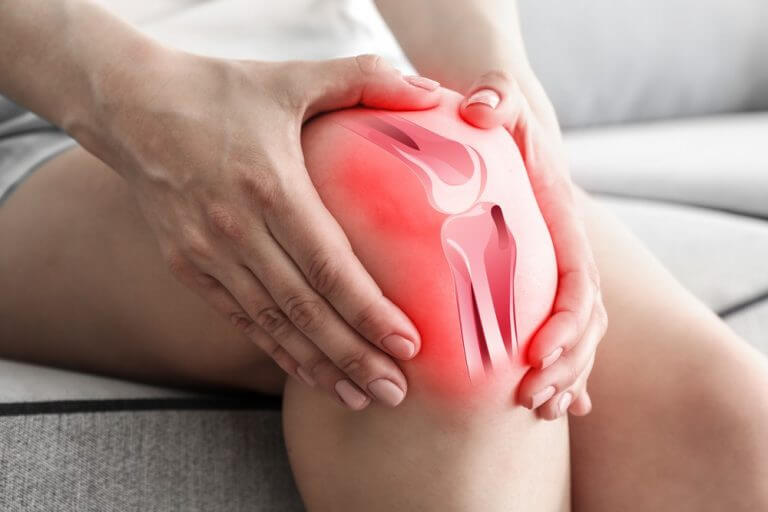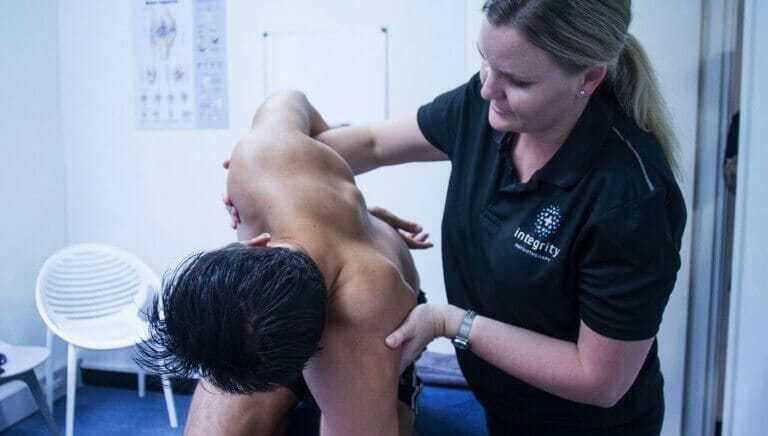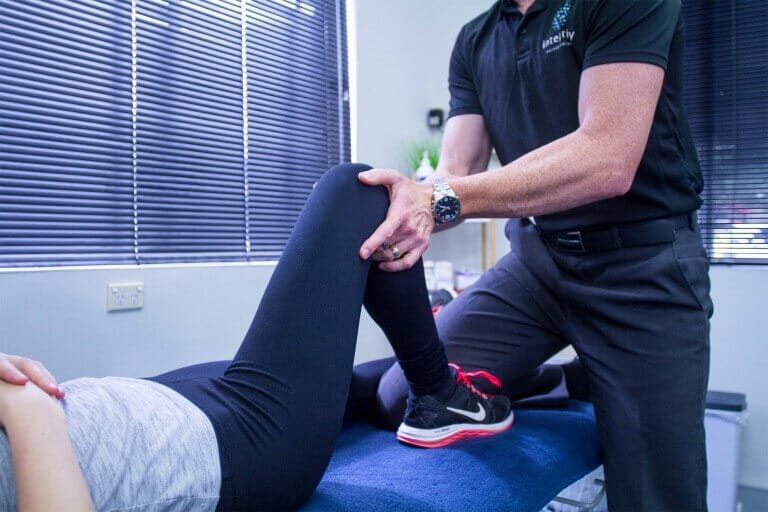
Physiotherapy is proven to be effective in the treatment of many aches, pains and other conditions. Physio can help to relieve common painful conditions such as arthritis, back pain, knee pain and chronic pain conditions. Physio Perth is also beneficial for many other problems, including weight related issues, pelvic floor problems, mobility issues and lung conditions.
Perth physiotherapy uses a number of effective and safe techniques to treat a wide range of conditions, from muscle strengthening, stretching and aerobic conditioning, to Pilates, dry needling and massage. Physiotherapy is also effective in treating a wide range of painful conditions, including back pain, joint pain, knee problems, sprains and strains, arthritis and muscles problems. Below is further information about some of the common conditions that physiotherapy can effectively treat.
Back Pain

Back pain is a common condition affecting up to 80% of the population at some point in their lives. Back pain can be caused by a number of factors, including muscles strains, poor posture, ligament sprains, arthritis, muscle weakness and disc problems.
Depending on the cause, physiotherapy can effectively treat back pain using techniques such as manual therapy, exercises, massage and other preventative measures. Physiotherapists teach their patients exercises that stretch and strengthen the back muscles and increase range of motion. The majority of exercises do not require special equipment and can be done at home to help improve recovery time.
Chronic Pain

Chronic pain can cause significant disability and is one of Australia’s most costly health burdens. Chronic pain can have major impacts on daily life, leading to problems with work and normal daily activities. Chronic pain is one of the leading causes of early retirement. Not only does chronic pain impact people physically, it also has a significant impact on a person’s mental health. Psychological distress is six times more common in those living with chronic pain, while 40% of sufferers have reported symptoms of depression and anxiety.
Physio for chronic pain involves a range of therapies, both active and passive which are designed to improve movement and reduce pain. Physiotherapists are musculoskeletal experts and use scientifically based techniques to reduce pain. For those living with persistent pain, treatment programs are designed with exercises that can be practiced at home and built into your own schedule.
Physio supports those with chronic pain to improve overall function, reduce pain and improve their quality of life. Physios have extensive experience to educate people who suffer from chronic pain and guide them through a range of supervised exercises while setting achievable goals.
Those living with chronic pain often find it painful to move and complete exercise programs, however the pain is likely to become worse without the exercises. It can only take one day of bed rest for the muscles to begin wasting and for joints to stiffen. As a result, stretching and strengthening exercises help to build fitness and flexibility which increases the patient’s ability to cope with chronic pain.
Pelvic Floor
Pelvic floor physiotherapy plays an important role in women’s health and can be essential following childbirth. Pelvic floor physio helps women to rehabilitate their pelvic floor muscles. These muscles can be weakened due to pregnancy, childbirth, being overweight, surgery, menopause and heavy lifting. If these muscles become weak, it can affect bladder and bowel control.
Knee Pain

Your knee is important for helping to absorb shock and bear weight as you move, however they are vulnerable to injury. Physio can do a lot to help those with knee pain through a variety of techniques. Physiotherapy for knee pain aims to increase your range of motion, release soft tissue restrictions, strengthen surrounding muscles and reduce pain or inflammation.
Your physiotherapist may recommend modifying or avoiding certain activities while there is pain present. However, treatment will depend on what is causing the pain in the first place. Your physio is able to identify the source of the pain, such as muscle tightness, and recommend the appropriate treatment plan, such as strengthening and stretching exercises.
Arthritis is a common cause of knee pain which often results in the knee joint stiffening up. This causes pain, reduced function and can cause weakness. Physiotherapy will help to increase the knee’s range of movement, which will reduce pain and weakness, while improving overall function.
Breathing Techniques
A specialised area of physiotherapy that teaches breathing techniques is called respiratory physiotherapy, or chest physiotherapy. This type of physio treats diseases and injuries in the chest and the lungs using exercises and specific breathing techniques. Conditions affecting this area often cause shortness of breath, persistent coughs and laboured breathing. This includes conditions such as asthma, bronchitis, emphysema, pneumonia and chronic obstructive pulmonary disease.
Respiratory physiotherapy helps to improve lung function and can be invaluable for those suffering from chronic health conditions or related breathing problems. Chest physiotherapy can benefit most who have problems with breathing and lung function, particularly mucus build-up which reduces the ability of the lung to take in enough oxygen.
Your physiotherapist will listen and observe how much movement occurs in the ribs and diaphragm to determine airflow and if there is mucus affecting the lungs. This allows your physio to determine the most appropriate treatment plan. Some of the techniques used include breathing exercises, percussion, breathing and coughing techniques and breathing control exercises.
Weight Management
Physiotherapy provides an excellent way to lose weight while protecting vulnerable joints, which is especially important if you are recovering from illness or injury. Physiotherapists are experts at educating patients about physical activity and the impact that extra weight can have on the musculoskeletal system. As well as addressing weight issues, physiotherapists are able to treat problems that are associated with weight gain, such as joint problems, tendonitis and pain associated with excess weight.
Avoid Surgery
Sometimes surgery is the only option to treat physical conditions. However, trying physiotherapy first can often reduce pain and help you to heal from injury, thereby reducing the need for surgery. In some cases, surgery may be necessary, however physiotherapy is also very beneficial both pre-surgery and post-surgery to help with rehabilitation.
Improved Mobility

Regardless of your age, if you’re having mobility issues, such as difficulty walking, standing or moving around, physiotherapy can help. Physio uses strengthening and stretching techniques specific to the patient’s needs to improve mobility and restore function. Physiotherapists may also advise on mobility aids where necessary, such as crutches, canes and other assistive devices.
Treatment plans may include, strengthening exercises, balance work, joint mobilisation, gait advice and training, massage and falls prevention strategies. Your physio will prescribe the appropriate combination of treatment options which are tailored specifically to provide the maximum improvement in strength, range of motion, mobility and fitness.
Prevents Falls
Physiotherapy can be very beneficial to those who are at risk of falls, such as the elderly or those with a pre-existing injury. If you are at risk of a fall, your physio will provide safe and effective exercises that challenge your balance and strengthen your muscles. The exercises also help to improve coordination and you may be provided with assistive devices for safer walking. If balance is the issue, this may be caused by problems with the vestibular system. Your physiotherapist will provide treatment options to reduce vertigo or dizziness and restore proper vestibular functioning.
Managing Age-Related Conditions
As a person ages, certain conditions become more common, such as osteoporosis and arthritis. This may cause pain and mobility issues. Physiotherapy can help with these conditions by providing techniques to improve mobility, reduce pain and increase quality of life. For patients who are recovering from joint replacement surgery, physio is very beneficial to assist with rehabilitation.
Physiotherapy And Exercise

Physiotherapists are highly trained in the use of exercise therapy for strengthening muscles and improving function. Exercise therapy is proven to be one of the most effective techniques to reduce pain and prevent injury. Your physiotherapist is an expert in prescribing the most appropriate exercises for your condition and current fitness level. Many components may be incorporated into your program, such as Clinical Pilates, specific resistance based exercises and correction of muscle imbalances.
What Are The Main Benefits Of Physiotherapy?
Physiotherapy is an effective treatment option for many conditions and injuries. Physiotherapy uses techniques to improve overall physical function and wellness, while improving quality of life. The main benefits of physiotherapy include:
- Improves many chronic conditions
- Reduces pain
- Increases mobility
- Increase strength and flexibility
- Reduces the need for surgery
- Injury prevention
- Helps with weight control
- Uses evidence-based techniques
- Integrates well with other medical and health professionals
- Provides education and communication
- Provides individual treatment
- Is suitable for all ages
Physiotherapy also utilises hands-on techniques for many conditions. Physio Perth involves manual techniques such as dry needling, joint mobilisation, joint manipulation, muscle release techniques and massage. This helps patients to regain pain free movement in the joints and soft tissues, while improving their fitness and quality of life.
For more information about how physiotherapy can assist with your pain or musculoskeletal condition, speak to our friendly and helpful staff at Integrity Physio.




